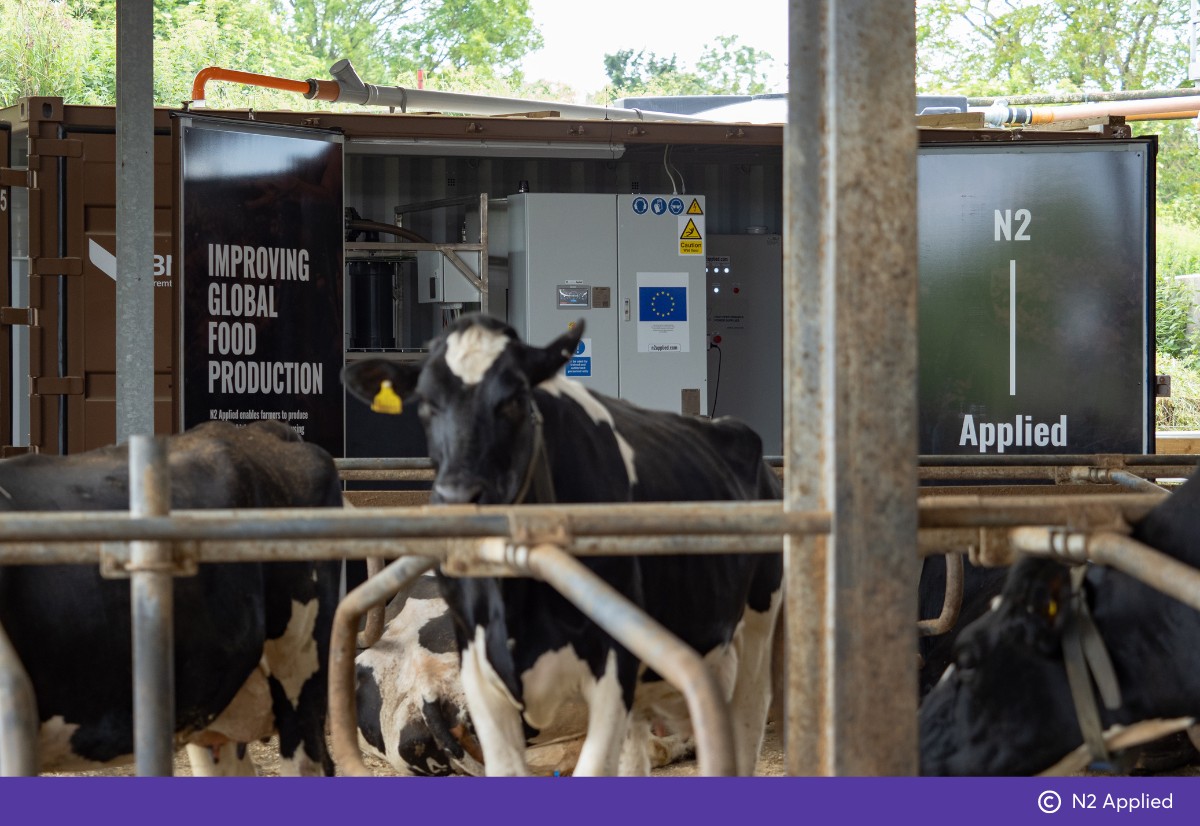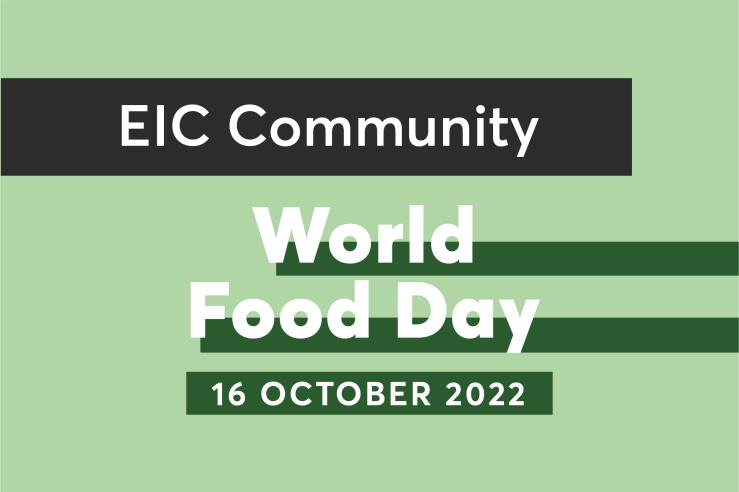To mark this year’s World Food Day, celebrated on 16 October, we are focusing on 3 EIC-funded projects that offer solutions to provide a sustainable, safe and healthy approach to the food market when it comes to production and packaging. Discover: a new way of producing eco-friendly fertiliser that leads to healthier food; how tomatoes can be recycled into creating a lacquer to conserve food in metal cans; a green technology that can enhance the power of light to make crops grow faster and stronger.
N2 Applied: environment-friendly fertiliser for healthier food
To guarantee a sustainable and healthy food supply chain, we need to start at the fields where our products are grown and harvested. With the premise of contributing to a climate-neutral future, the EIC-funded company N2 Applied has developed an innovative technology which enables local production of environment-friendly fertiliser, that also is richer in nutrient content giving increased yield to farmers.
Reducing greenhouse gas emissions and odour, and stopping ammonia loss and air pollution, N2 Applied’s innovative technology presents an alternative to chemical fertilisers. This constitutes a new solution for improving food production by increasing yield in a sustainable way, while also tackling the challenges related to manure nutrient losses and emissions at the source.
The company has developed their N2 Unit which is placed directly on the farm to convert slurry from livestock into an efficient and sustainable fertiliser. With their novelty process, the company uses plasma technology to enrich slurry with nitrogen directly from air and at the same time stop ammonia and methane emissions from storage and field application.
We met Trond Lund, Head of Business Development of N2 Applied, that told us about the concerning existing methods for food growing: “We currently feed our world population, for a significant part, with chemical fertiliser that is produced in large factories using fossil fuels like gas and coal to power the production. Besides high emissions related to production and transport, there are high losses of nitrogen and laughing gas (N2O) during and after field application. Applying fertiliser in large volumes leads to acidification and depletion of our soils.”. However, their solution presents an answer to the problem, as Trond explains: “One specific solution could really make the difference: plasma treatment of livestock slurry. This concept hits two goals at the same time: it offers farmers a sustainable alternative for chemical fertiliser and at the same time reduces ammonia and methane emissions from livestock slurry. And all this locally on the farm using only air and electricity.”.

TomaPaint: using tomatoes skins to improve safety & sustainability in food preservation
Food preservation is very important, whether we are talking about the need to maintain our food proper for consumption for longer periods of time, or about the containers where we are storing it. Unfortunately, metal cans, one of the most used means for food preservation, have proved to be a global health threat due to potential release of chemicals into the food.
EIC-funded TomaPaint believed that processed preserved foods could become safer through the use of biological materials in their packaging. Hence, they have been developing a technology that delivers a high-performance bio-resin for coating metal food cans obtained from industrial tomato processing by-products. This innovation presents an ecological alternative to synthetic petrochemical-based resins, delivering significant environmental and health benefits.
By using their patented process to extract cutin (a natural polymer found in the cuticle of tomato skins) from tomatoes industrial by-products, TomaPaint creates a bio-resin that is, then, used to produce a bio-lacquer to be applied on the internal and external surfaces of metal food containers.
As described by Tommaso Barbieri, Co-founder and COO of TomaPaint: “Tomapaint bioresin is obtained from food industrial by-products, so it contributes to valorise them and reduce food waste. The Tomapaint solution will reduce the environmental impact of the food packaging process and increase, as a natural substance, the consumer health.”. When talking with us, Tommaso also reinforced the company values: “Our messages are: create new renewable food packaging reducing food waste; develop a new value chain in the bioeconomy sector.”.
CASCADE: lighting the way for more and greener crop yields
Continuous population growth and an increasing scarcity of land fields for food growth and production is currently concerning. Innovative and sustainable technologies are in need to boost crop yields without increasing production costs and energy use. CASCADE, a French company, has received funding from the EIC to develop a ground-breaking solution in the form of masterbatches that shift a portion of the sunlight spectrum into wavelengths most efficiently used for photosynthesis and plant development.
This new and revolutionary process is achieved through their patented LIGHT CASCADES technology that can be incorporated into greenhouse film. The innovation is made possible through the integration of luminescent additives into polymeric films, paints or coatings to provide these materials the ability to modify the spectrum of light.
CASCADE uses their sunlight optimisation technology in various types of applications, including for agriculture, photovoltaic modules, and microalgae growing. When it comes to the agricultural sector, the LIGHT CASCADES solution has a range of benefits that include improved crop yields, reduction of fertilisers and water spending, and better usage of cultivated land. At the moment, the company has more than 110 agronomic trials being carried out in farms located all over Europe with real growing conditions, so their technology can be tested, evaluated and optimised, and on different crops such as tomato, pepper, cucumber or berries.
Frédéric Peilleron, CEO of CASCADE, highlighted the benefits of their technology: “Natural sunlight can be adapted to plant development of protected crops to speed up move toward a more sustainable agriculture. LIGHT CASCADE® technology is a cost effective, easy-to-use solution dedicated to farmers and it is complementary to other agri-tech innovations (genetics, precision agriculture, artificial lighting…).”.


